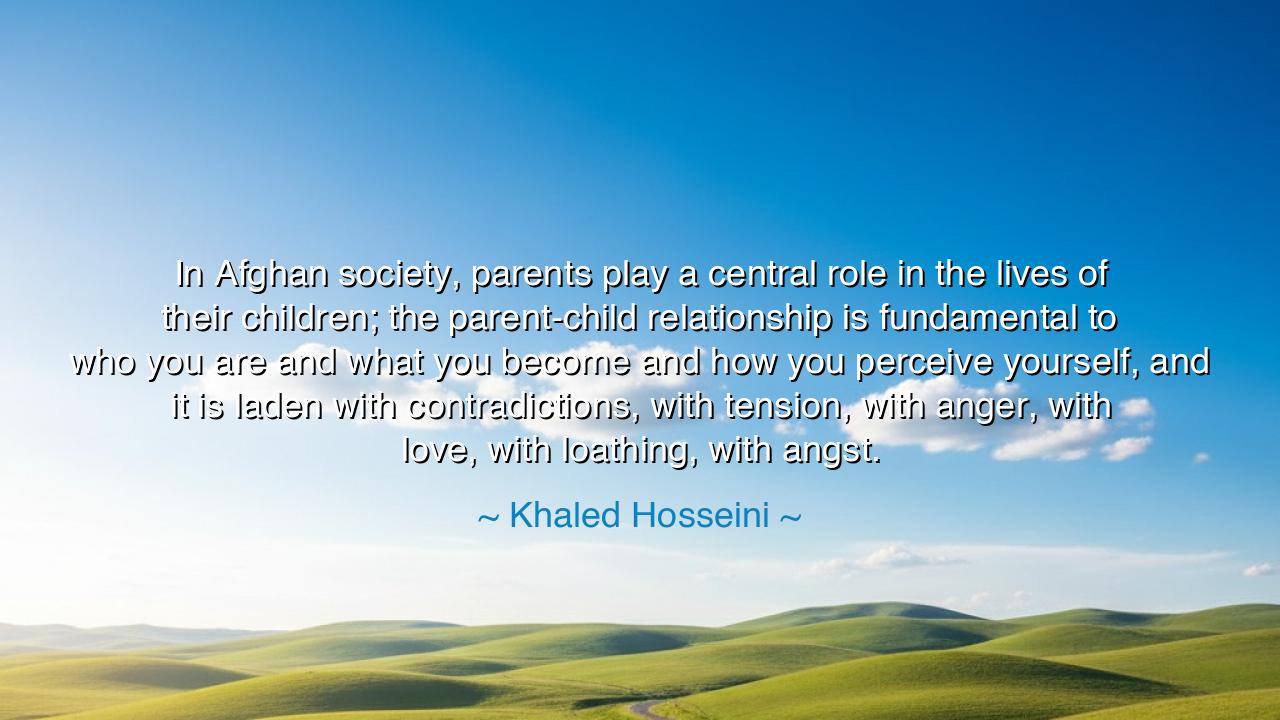
In Afghan society, parents play a central role in the lives of
In Afghan society, parents play a central role in the lives of their children; the parent-child relationship is fundamental to who you are and what you become and how you perceive yourself, and it is laden with contradictions, with tension, with anger, with love, with loathing, with angst.






Opening Scene
The late afternoon sun filters through the blinds, casting long, delicate shadows across the room. Outside, the sound of children’s laughter echoes in the street, but inside, the air is heavy with an unspoken understanding. Jack and Jeeny sit at the table, the remnants of their lunch still scattered between them. Their conversation, though quiet, feels intense — like it’s been building to something deeper, something more profound. The soft hum of the world outside contrasts with the stillness of the room, and for a brief moment, everything feels suspended, as if time itself is holding its breath.
Host: The room feels warmer now, as if the weight of the conversation has already begun to settle. The light from the window seems to soften around them, but there’s a tension in the air, an invisible thread tying them to a deeper truth.
Jeeny: (her voice calm, but filled with quiet intensity) “I was thinking about something Khaled Hosseini said in The Kite Runner. He talks about the parent-child relationship in Afghan society, how it’s central to everything — to who you are, what you become. He said, ‘It is laden with contradictions, with tension, with anger, with love, with loathing, with angst.’ Isn’t it strange how the most fundamental relationship in life can be so complicated?”
Jack: (pausing, his expression shifting, his voice thoughtful) “Complicated? It’s more than that. It’s like everything — every emotion — is wrapped up in the way we relate to our parents. The good, the bad, the ugly. And maybe that’s why it feels so heavy, because it defines us so completely.”
Jeeny: (nodding, her gaze intense) “Exactly. The parent-child relationship is like a foundation. It shapes who we are, how we see the world, how we relate to others. But at the same time, it’s filled with contradictions — love and anger, attachment and distance, all in one. You can be angry at your parents, and yet still love them, still crave their approval.”
Host: The light in the room flickers for a moment, casting shadows that stretch across the table. The conversation between Jack and Jeeny feels heavy, laden with the weight of experience, of emotions that aren’t easily reconciled. Jack leans forward, his gaze now fixed on Jeeny as he considers her words. The world outside seems almost distant, as if their conversation has taken on a life of its own.
Jack: (his voice reflective, softer now) “You know, I’ve always thought of the parent-child relationship as one of the most fundamental in shaping who we become. But it’s so full of complexity. It’s like you can’t have the good without the bad — the love without the pain.”
Jeeny: (her voice almost a whisper, filled with understanding) “It’s true. The love we have for our parents isn’t always pure. It’s messy. It’s filled with resentment, with frustration, because we expect them to be everything — perfect, infallible. And when they fail to meet those expectations, it hurts in a way that goes beyond simple disappointment.”
Host: The stillness between them grows deeper, the silence settling into a place of shared reflection. The air is thick with the weight of their conversation, the tension between love and anger, attachment and freedom, filling the room. The soft click of the clock in the background is the only sound that breaks the quiet.
Jack: (his voice low, almost questioning) “But how do we deal with that? With the contradictions? With the tension? Because the anger, the loathing, it’s hard to just ignore. It’s there, and it shapes us, doesn’t it?”
Jeeny: (her voice gentle, but strong) “It does. And the key is to accept it. To accept that no relationship is perfect, especially one so deep and formative as the one between parent and child. The contradictions don’t negate the love — they just make it more complicated, more layered. You can be angry with them, resent them, but still love them deeply. And sometimes, the tension is part of how we grow.”
Host: The rhythm of the room seems to slow, the stillness stretching like a moment frozen in time. Jack looks down, his fingers tracing the edge of his coffee cup, lost in the weight of their conversation. The world outside continues, but here, in this quiet moment, they have reached something deeper, something that feels at once liberating and difficult to accept.
Jack: (his voice quieter, almost in acceptance) “Maybe it’s not about solving the contradictions. Maybe it’s about living with them. Accepting that love and anger, joy and pain, are all part of the same relationship. That’s what makes it so real, so raw.”
Jeeny: (smiling softly, her voice calming) “Exactly. It’s the human experience. The messiness, the beauty, the complexity. Our parents shape us, for better or worse, and we carry that with us. And even if the relationship is full of tension and anger, it doesn’t diminish the love. It just makes us who we are.”
Host: The conversation slows, but there is a shift between them. The room feels lighter, the weight of their words settling into something more peaceful. The complex web of love, resentment, attachment, and growth has found its place, and for a moment, Jack and Jeeny sit together in the understanding that no relationship — especially the one between parent and child — can ever be simple, but it’s in the contradictions that we find the depth of life itself. The world outside continues, but inside, a quiet peace has been reached.






AAdministratorAdministrator
Welcome, honored guests. Please leave a comment, we will respond soon